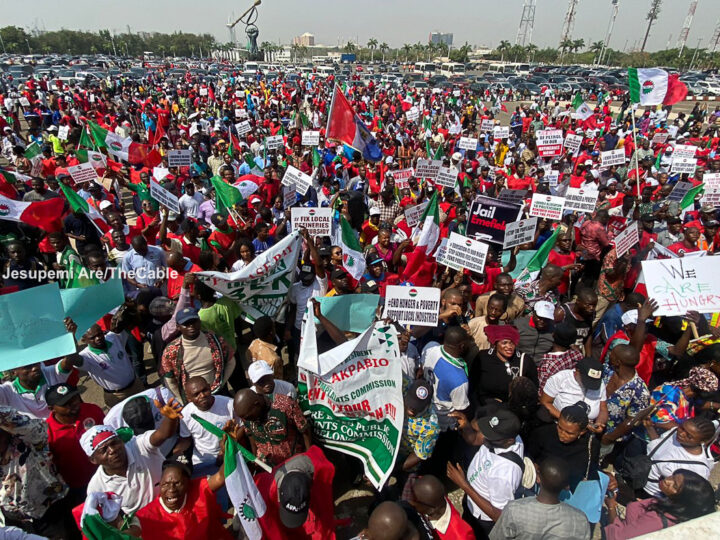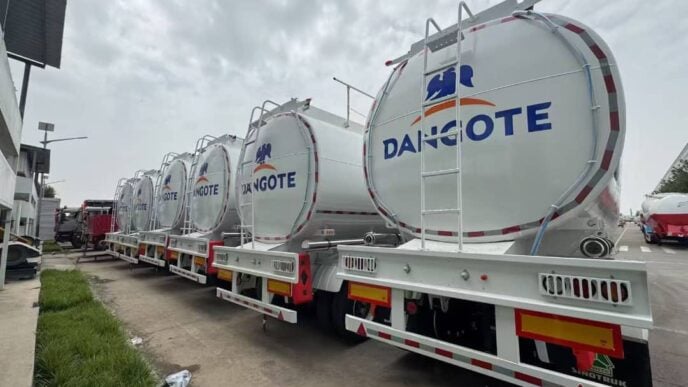NLC protest in Abuja circa February 2024 | File photo
The Nigeria Labour Congress (NLC) has called for an upward review of the national minimum wage, saying N70,000 has become inadequate.
Their demand follows recent wage reviews by some states.
In July 2024, President Bola Tinubu signed a new minimum wage law, raising the base from N30,000 to N70,000 for federal, state, and private sector employees.
However, inflation and the rising cost of food, transport, housing, and electricity have since eroded the value of the wage.
Advertisement
On August 27, Hope Uzodimma, governor of Imo, announced a new minimum wage of N104,000 for workers in the state, with corresponding adjustments across the salary structure.
Lagos, Rivers, Bayelsa, Enugu, Niger, Akwa Ibom, Ogun, Delta, Benue, Osun, and Ondo have also reviewed salaries upwards — with the nation’s commercial capital targeting N100,000 in 2025.
In an interview with NAN, Benson Upah, acting general secretary of the NLC, said workers are struggling to survive.
Advertisement
“The truth is that N70,000 is not sustainable under the present economic situation. Workers are under immense pressure, and unless the government responds quickly, the crisis of survival will only worsen,” he said.
He added that while the NLC is committed to dialogue, industrial action remains an option if the federal government fails to act.
Similarly, Shehu Mohammed, president of the Association of Senior Civil Servants of Nigeria (ASCSN), commended states that have increased wages, describing them as “eye-openers” for the federal government.
“Right from the beginning, during the negotiation, our demand was for a living wage, and we submitted N250,000 as a reasonable benchmark,” Mohammed said.
Advertisement
“Let’s be realistic. Even if you pay electricity bills out of N70,000, what remains cannot sustain a family for 10 days.”
He urged governments to complement wage increases with policies that reduce the cost of living, including affordable housing, healthcare, and subsidised transportation.
Some federal workers who spoke to NAN expressed similar concerns, saying survival has become increasingly difficult under current conditions.
Advertisement











